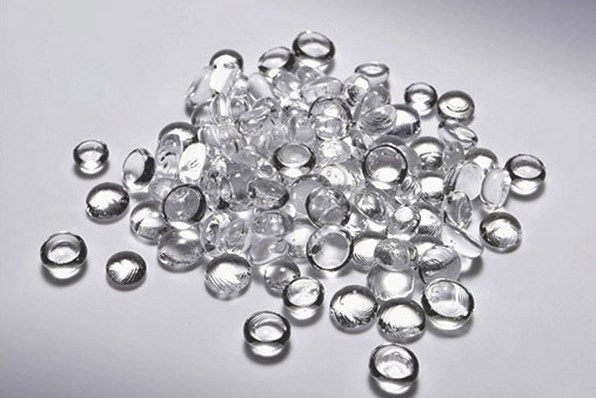Cyclic Olefin Copolymer Earns APR Recognition for Recyclability with HDPE
Polyplastics is developing key data to support industrywide sustainability efforts that will allow companies to confidently use its Topas COC to enhance the performance of recyclable products.
The Association of Plastic Recyclers (APR) has granted Critical Guidance Recognition to Polyplastics USA, Farmington, Mich., for high-gloss HDPE blow molded containers with 20% cyclic olefin copolymer (Topas 8007F-600) outer layer. The APR recognition demonstrates that Topas COC is compatible with the HDPE recycle stream.
To meet the packaging industry’s demands for a circular economy, Polyplastics is aggressively developing necessary data to support industrywide sustainability efforts. This will allow companies to confidently use COC to enhance the performance of recyclable products. The APR’s Critical Guidance Recognition follows Topas COC’s certification last year as a recyclable material by the European independent testing lab, Institut cyclos-HTP. In Europe, Topas materials are the first COC resins in the industry to be deemed recyclable with PE and PP for film and injection molding uses.

International trade association APR represents the plastics recycling industry, and has taken the lead in setting standards for plastics recyclability at U.S. recyclers. Said Polyplastics USA market development manager Paul Tatarka, “This APR recognition for COC is an important development for brand owners, manufacturers, and processors who seek recycled packaging solutions to meet today’s broad sustainability needs. We are now able to offer important evidence that COC can be used and recycled in HDPE in rigid blow molding applications.”
Blow molded HDPE containers with 20% COC outer layer present a very challenging test condition. This package satisfies the strictest APR Critical Guidance criteria of procedure HDPE-CG-01 and of the APR’s bottle-to-bottle test protocol. These APR protocols are intended to improve the quality of the recycled bottle stream by helping companies make informed decisions about the consequences of packaging solutions.
Polyplastics is working actively with current customers to develop extrusion blow molded (EBM) rigid containers for personal care applications. The company will also work with APR to meet its Critical Guidance for the use of COC in flexible film recycling streams.
Related Content
-
Delivering Increased Benefits to Greenhouse Films
Baystar's Borstar technology is helping customers deliver better, more reliable production methods to greenhouse agriculture.
-
Flexible-Film Processor Optimizes All-PE Food Packaging
Tobe Packaging’s breakthrough was to create its Ecolefin PE multilayer film that could be applied with a specialized barrier coating.
-
Fundamentals of Polyethylene – Part 5: Metallocenes
How the development of new catalysts—notably metallocenes—paved the way for the development of material grades never before possible.
















